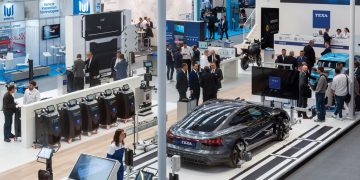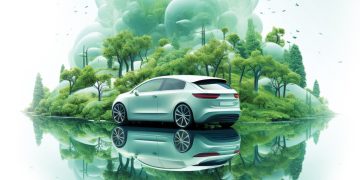Honda has announced its ambition to dramatically scale up its smart vehicle charging service, e:PROGRESS, during the brand’s media event in Offenbach, Germany. The brand confirmed that e:PROGRESS will be available for future owners of the all-new e:Ny1 full EV and CR-V e:PHEV plug-in hybrid. Within the next 12 months, the service will be offered in more European markets and then Honda will plan to expand the service to non-Honda EV owners.
Already live in the UK and available to owners of the all-electric Honda e since 2021, the service schedules access to low-cost renewable electricity by combining a smart EV charger with a dynamic energy tariff and intelligent charging app. Following an analysis of UK customers, Honda can confirm average annual savings of £500 – increasing to as much as £1,000 for high mileage customers.
Honda is the only car company providing such a service under its own brand, and with the commitment to widen the availability of the service in the coming years, the brand is aiming to become a major player in the European smart charging market over the coming years.

“We believe e:PROGRESS has the potential to revolutionise the efficiency and cost effectiveness with which EV owners charge their vehicles going forward,” said Jorgen Pluym, General Manager, Energy Solutions and Business Development Division, Honda Motor Europe. “We already have a compelling test case from our UK rollout over the past two years. Now, as we make it possible for customers to integrate their residential solar array into their charging network, in addition to making the service available across Europe and to owners of non-Honda vehicles, we expect to supercharge the growth of the service in the years ahead.”
The solar optimisation feature of e:PROGRESS was recently made available in the UK and Germany, intelligently scheduling a customer’s charging for when they are likely to have the most available self-generated solar energy. It also considers upcoming weather forecasts and user defined requirements – such as state of charge and planned departure time – to calculate when is best to charge the vehicle. Alongside a ‘Time of Use’ tariff, this new feature will ensure the most efficient and renewable vehicle charging for customers, while also reducing the stress being placed on the grid locally to achieve this.
Future phases of e:PROGRESS development will include additional grid and bi-directional charging services, all of which can play a role in maximising the use of renewable energy and reduce the burden of EVs on the power grid. In the long-term, the service may even extend beyond EVs, adding household appliances into the domestic charging infrastructure, such as static batteries and heat pumps.



























































